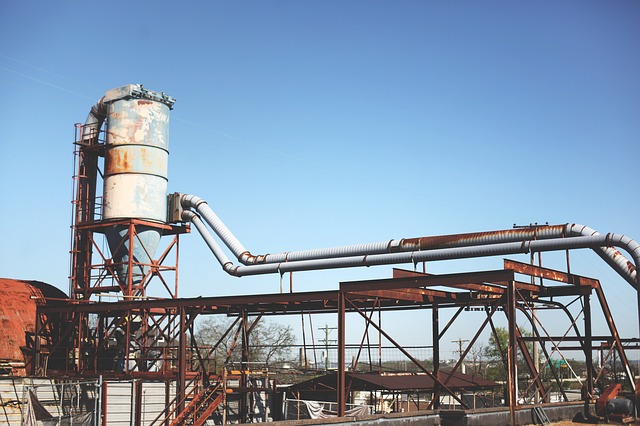If you are a homeowner, there is a good chance you will need to call on a gas engineer at some point. But what does a gas engineer do? And more importantly, what should you expect them to do when they come to your home? This brief post will answer those questions and give you an easy guide to understanding the work of a gas engineer.
How to become a gas engineer
A gas engineer is a professional who is trained to work with natural gas and other gaseous fuels. They are responsible for the installation, repair, and maintenance of gas appliances and systems. Before becoming certified to work with gas, engineers must complete the requirements of a course as well as a rigorous training program. Hence, in case you are interested in becoming one yourself, you have to complete a gas engineer course in Edinburgh that will provide you with the necessary skills and knowledge. The course will tackle the Gas Safety Regulations, which is needed to be understood by every engineer. In terms of training, a gas engineer will learn about the different types of gases, how to work with them safely, and what precautions to take when carrying out their work.
Aside from this, most gas engineers work for Gas Safe registered companies. Gas Safe is the UK’s official registration body for gas engineers. To be registered with Gas Safe, engineers must have passed a series of exams and hold a valid Gas Safety Certificate. This certificate is renewed every five years. If not, their registration will be revoked. This means that if you are looking for a gas engineer, it is important to check that they are Gas Safe registered. As much as possible, you should also look for their insurance details and ask for referrals.
Where a gas engineer works
Domestic sector
Gas engineers typically work in the domestic sector, although they may also be employed in commercial and industrial settings. The former means they work in people’s homes, while the latter refers to places like factories or office blocks. Domestic gas engineers work on a variety of appliances, including cookers, fires, and boilers. Cookers are usually powered by natural gas, while fires and boilers can run on either oil or gas. For this reason, gas engineers must be able to work with both types of fuel. In most instances, gas engineers also carry out annual gas safety checks, which are a legal requirement for all homeowners in the UK.
A commercial and industrial setting
Meanwhile, commercial gas engineers typically work in larger premises, such as factories, office blocks, and hospitals. They are responsible for the installation, repair, and maintenance of gas-fired appliances and systems. These can include central heating systems, water heaters, and industrial ovens. As with domestic gas engineers, commercial gas engineers must also be registered with Gas Safe. There are certain instances wherein gas engineers may also be employed by Gas Safe registered companies to work on domestic properties. However, they will usually only be called out to carry out specific tasks, such as installation or repair work.
The duties of a gas engineer
Inspection
The primary duty of a gas engineer is to ensure the safe operation of gas appliances and systems. This includes carrying out regular inspections, testing, and maintenance. Some of the things that need to be inspected are flues, chimneys, and ventilation. Gas engineers also need to check for leaks, blockages, and corrosion. If a problem is found, it is the gas engineer’s responsibility to carry out repairs or replace faulty parts. The repairs may be carried out on-site or in a workshop.
Installation
They may also be required to install new appliances or systems from scratch. This includes connecting the appliance to the mains supply, carrying out tests, and giving the customer instructions on how to use the appliance safely. In some cases, gas engineers may also be required to install pipework. Pipework for gas appliances must be installed by a qualified gas engineer because it is classified as high-risk work, which means that there is a greater chance of something going wrong.
Maintenance
Aside from inspection and installation, gas engineers are also responsible for carrying out maintenance work. This includes servicing and repairing appliances and systems. Servicing involves cleaning the appliance, checking that all parts are in good working order, and making any necessary adjustments. Repair work, on the other hand, is usually carried out when an appliance or system breaks down. Gas engineers must be able to diagnose the problem and carry out the necessary repairs. They may also be required to replace parts that have worn out or been damaged.
Emergency call-outs
Gas engineers may also be required to carry out emergency call-outs. This is usually in the event of a gas leak or appliance failure. In these instances, gas engineers must be able to remain calm and act quickly. They must also be able to follow instructions from the control room and follow safety procedures. Gas engineers usually work shifts, which means that they may be required to work weekends, evenings, or nights.
Advice and training
Another duty of gas engineers is to provide advice to customers on the safe use of gas appliances and systems. This includes advising on the best type of appliance for their needs, as well as how to operate it safely. Gas engineers may also be required to provide training to customers on the proper use of their appliances. In some instances, they may need to carry out gas safety checks for landlords or businesses.
So there you have it, a brief guide to understanding what a gas engineer does. Gas engineers are trained professionals who are responsible for the installation, repair, and maintenance of gas appliances and systems. If you ever need to call one to your home, you can expect them to assess the problem, take appropriate action, and carry out safety checks. If you have any further questions about what gas engineers do or how they can help you, be sure to contact a registered engineer in your area.









